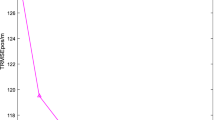Abstract
The well-known conventional Kalman filter gives the optimal solution but to do so, it requires an accurate system model and exact stochastic information. However, in a number of practical situations, the system model and the stochastic information are incomplete. The Kalman filter with incomplete information may be degraded or even diverged. To solve this problem, a new adaptive fading filter using a forgetting factor has recently been proposed by Kim and co-authors. This paper analyzes the stability of the adaptive fading extended Kalman filter (AFEKF), which is a nonlinear filter form of the adaptive fading filter. The stability analysis of the AFEKF is based on the analysis result of Reif and co-authors for the EKF. From the analysis results, this paper shows the upper bounded condition of the error covariance for the filter stability and the bounded value of the estimation error. Keywords: Adaptive Kalman filter, forgetting factor, nonlinear filter, stability analysis.
Similar content being viewed by others
References
C. Hide, T. Moore, and M. Smith, “Adaptive Kalman filtering for low-cost INS/GPS,” Journal of Navigation, vol. 56, no. 1, pp. 143–152, 2003.
K. H. Kim, J. G. Lee, and C. G. Park, “Adaptive two-stage Kalman filter in the presence of unknown random bias,” International Journal of Adaptive Control and Signal Processing, vol. 20, no. 7, pp. 305–319, September 2006.
K. H. Kim, G. I. Jee, and J. H. Song, “Carrier tracking loop using the adaptive two-stage Kalman filter for high dynamic situations,” International Journal of Control, Automation, and Systems, vol. 6, no. 6, pp. 948–953, December 2008.
K. H. Kim, J. G. Lee, and C. G. Park, “Adaptive two-stage EKF for INS-GPS loosely coupled system with unknown fault bias,” Proc. of International Symposium on GPS/GNSS 2005, GPS/GNSS05-6A-02(Session 6A), Hong Kong, 8–10 December 2005.
K. H. Kim, J. G. Lee, and C. G. Park, “Adaptive two-stage extended Kalman filter for the fault tolerant INS-GPS loosely coupled system,” IEEE Trans. on Aerospace and Electronic Systems, to be published.
K. H. Kim, An Adaptive Filter Design for a Fault Tolerant Navigation System, Ph.D. Dissertation, Seoul National University, 2006.
K. Reif, S. Gunther, E. Yaz, and R. Unbehauen, “Stochastic stability of the discrete-time extended Kalman filter,” IEEE Trans. on Automatic Control, vol. AC-44, no. 4, pp. 714–728, 1999.
Q. Xia, M. Rao, Y. Ying, and X. Shen. “Adaptive fading Kalman filter with an application,” Automatica, vol. 30, no. 8, pp. 1333–1338, 1994.
C. Hide, T. Moore, and M. Smith, “Adaptive Kalman filtering algorithms for integrating GPS and low cost INS,” Proc. of Position Location and Navigation Symposium, pp. 227–233, 2004.
L. Ozbek and F. A. Aliev. “Comments on adaptive fading Kalman filter with an application,” Automatica, vol. 34, no. 12, pp. 1663–1664, 1998.
M. Efe and L. Ozbek. “Fading Kalman filter for maneuvering target tracking,” Journal of the Turkish Statistical Association, vol. 2, no. 3, pp. 193–206, 1999.
T. J. Tarn and Y. Rasis, “Observers for nonlinear stochastic systems,” IEEE Trans. on Automatic Control, vol. AC-21, no. 4, pp. 441–448, 1976.
Author information
Authors and Affiliations
Corresponding author
Additional information
Recommended by Editorial Board member Huanshui Zhang under the direction of Editor Young Il Lee.
Kwang-Hoon Kim received the Ph.D. degree in the School of Electrical Engineering and Computer Science at Seoul National University in 2006. His research interests include Kalman Filtering, GNSS/INS integration system, and GNSS signal processing algorithm.
Gyu-In Jee received the Ph.D. degree in Systems Engineering from Case Western Reserve University in 1989. His research interests include Indoor GPS positioning, Software GPS receiver, GPS/Galileo baseband FPGA design, and IEEE 802.16e based wireless location system.
Chan-Gook Park received the Ph.D. degree in Control and Instrumenta-tion Engineering from Seoul National University in 1993. His research interests include INS/GPS integration system, inertial sensor calibration, navigation and control for micro aerial vehicles, and estimation theory.
Jang-Gyu Lee received the Ph.D. degree from the University of Pittsburgh in 1977. He is currently a Professor at the School of Electrical Engineering and Computer Science at Seoul National University. His research interests include micro inertial sensors, inertial navigation systems, GPS, and filtering theory.
Rights and permissions
About this article
Cite this article
Kim, KH., Jee, GI., Park, CG. et al. The stability analysis of the adaptive fading extended Kalman filter using the innovation covariance. Int. J. Control Autom. Syst. 7, 49–56 (2009). https://doi.org/10.1007/s12555-009-0107-x
Received:
Revised:
Accepted:
Published:
Issue Date:
DOI: https://doi.org/10.1007/s12555-009-0107-x




